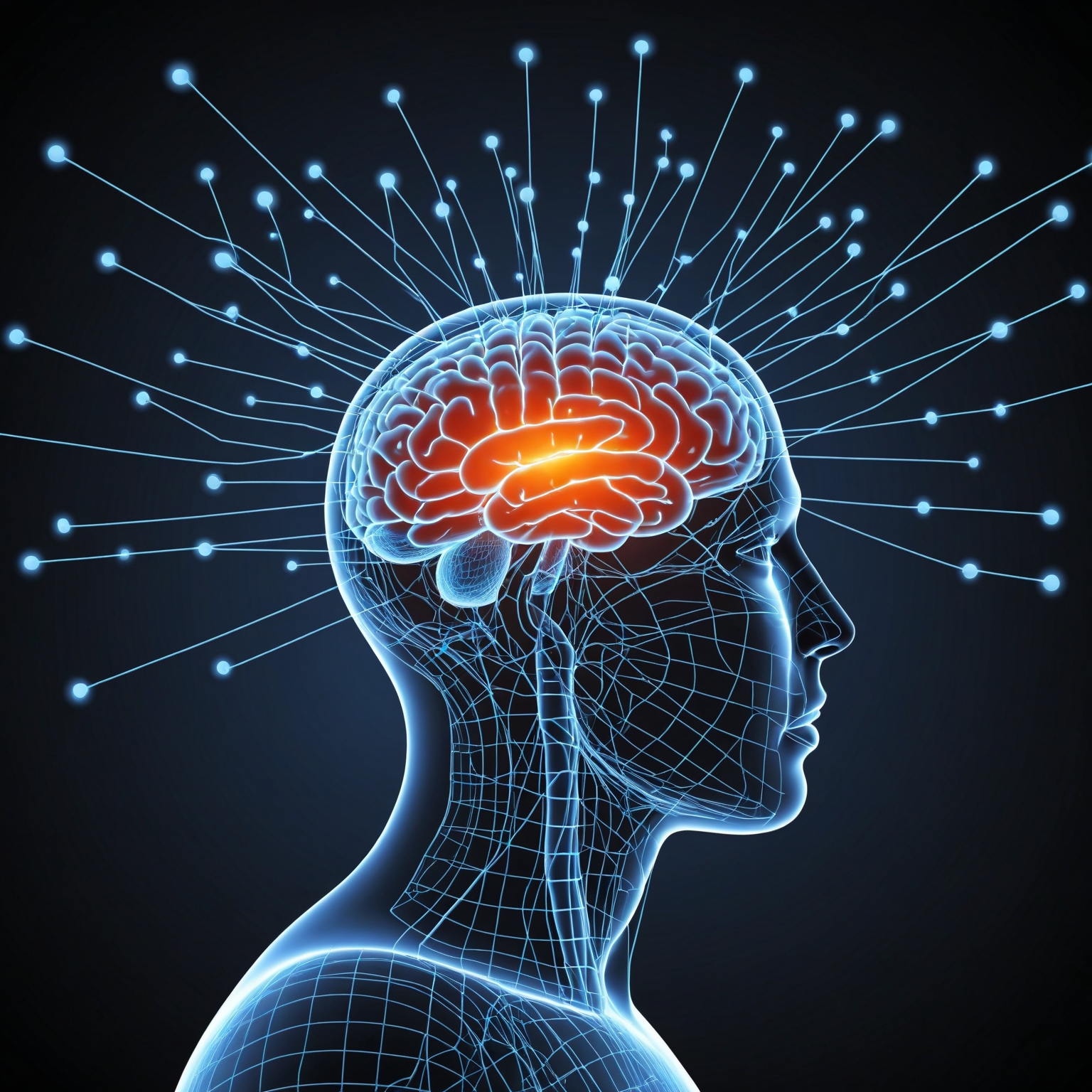Introduction: Understanding consciousness stands as one of humanity’s greatest intellectual challenges, weaving through scientific, philosophical, and spiritual realms. In this comprehensive blog post, we embark on a journey into the intricate layers of consciousness, shedding light on scientific studies, the interplay with quantum mechanics, insights from neuroscience, perspectives from religion and spirituality, and the ongoing global efforts to demystify this profound enigma.
1. Scientific Studies on Consciousness:
Scientific exploration of consciousness has evolved over centuries, with studies shedding light on the intricacies of our subjective experience. Pioneering works by researchers like William James and Sigmund Freud laid the groundwork, delving into the depths of human consciousness. Building on this foundation, modern experiments employing neuroimaging techniques, such as fMRI and EEG, have allowed scientists to correlate brain activity with conscious states. Notable studies like the Global Workspace Theory propose that consciousness arises from the integration of information across brain regions.
2. Quantum Mechanics and Consciousness:
The enigmatic relationship between quantum mechanics and consciousness has sparked intense debates and theoretical explorations. The Orch-OR theory, proposed by Stuart Hameroff and Roger Penrose, suggests that quantum effects in microtubules within neurons contribute to consciousness. However, the quantum mind hypothesis remains speculative and contentious, as quantum phenomena are typically observed at microscopic scales, challenging the idea of their relevance in the macroscopic complexity of the brain.
3. Neuroscience and Consciousness:
Neuroscientific investigations aim to pinpoint the neural underpinnings of consciousness, seeking the elusive neural correlates. Advances in brain imaging technologies have allowed researchers to observe brain activity associated with conscious experiences. Noteworthy experiments, like Libet’s studies on free will, have probed the temporal dynamics of conscious decision-making, stirring discussions on the nature of human agency and consciousness.
4. Religion and Spirituality:
Across diverse cultures and belief systems, discussions on consciousness intertwine with spiritual and religious narratives. Various traditions offer unique perspectives, from the Hindu concept of Atman to the Buddhist understanding of mindfulness and Christian teachings on the soul. Spiritual experiences, often described as transcendent or mystical, add nuanced layers to the discourse, raising questions about the intersection of personal consciousness and a broader, cosmic consciousness.
5. Physicists’ Views on Consciousness:
Renowned physicists, including luminaries like Albert Einstein and Niels Bohr, have contemplated the relationship between the physical world and consciousness. While some propose that consciousness arises from complex neural networks following physical laws, others, like Erwin Schrödinger, suggest that consciousness is fundamental, influencing the fabric of reality itself. The question of whether the observer plays a pivotal role in quantum phenomena continues to captivate the scientific community.
6. Evidences and Progress Globally:
The pursuit of understanding consciousness extends globally, with collaborative efforts, conferences, and research projects pushing the boundaries of knowledge. Initiatives like the Global Consciousness Project explore potential global interconnectedness through the study of random number generators during significant world events. Breakthroughs in neurotechnology and interdisciplinary collaboration underscore the accelerating pace of progress in consciousness studies.
7. Existence of Consciousness Across Entities:
Philosophical inquiries delve into the scope of consciousness, probing whether it exists universally or is exclusive to certain entities. The exploration of panpsychism suggests that consciousness may be a fundamental aspect of all matter, challenging traditional views that limit it to sentient beings. This nuanced discussion intersects with ethical considerations, impacting how we perceive and interact with the living world around us.
8. Dark Matter, Dark Energy, and Consciousness:
Venturing into the cosmic unknown, some speculative theories propose connections between dark matter, dark energy, and consciousness. While the scientific community has yet to establish concrete links, the exploration of these cosmic mysteries opens avenues for interdisciplinary dialogue. Concepts such as the holographic universe theory add layers of complexity to our understanding, hinting at potential connections between the macrocosmic and microcosmic aspects of existence.
9. Material vs. Consciousness:
Philosophical debates surrounding materialism and dualism continue to shape our understanding of consciousness. Materialists argue that consciousness is an emergent property of physical processes, while dualists posit a fundamental distinction between the material and conscious realms. The ongoing dialogue explores whether consciousness can be fully explained within the boundaries of physical laws or whether it necessitates a paradigm beyond the material.
10. The Emergence of Consciousness:
The emergence of consciousness from the intricate dance of neural processes remains a focal point of scientific inquiry. Theories in neuroscience propose that consciousness arises from the integration of information across distributed brain networks. The concept of emergence suggests that conscious experiences emerge from the complexity of neural interactions, providing a bridge between the physical substrate of the brain and the richness of subjective awareness.
Material vs. Consciousness:
The philosophical discourse between materialism and dualism represents a profound exploration into the fundamental nature of existence.
Exploring the Interwoven Nature:
The interplay between consciousness and the material world forms a complex tapestry where philosophical, scientific, and experiential threads converge.
Neuroscientific Insights: Materialist viewpoints find support in neuroscientific endeavors, where researchers aim to unravel the neural underpinnings of consciousness. Advances in brain imaging technologies provide glimpses into how specific brain activities correlate with subjective experiences, aligning with the materialist narrative.
Challenges to Materialism: However, challenges to materialism arise when considering the subjective richness of consciousness. Qualia, the raw, subjective aspects of experience, pose a challenge to a purely materialistic explanation. Explaining how the electrochemical processes of neurons give rise to the taste of chocolate or the experience of color remains a puzzle.
The Emergence of Consciousness:
Exploring Theories on Emergence:
The emergence of consciousness is a captivating subject within neuroscience and philosophy, seeking to elucidate how the subjective experience arises from the complexity of neural processes.
Integration of Information: One prominent theory proposes that consciousness emerges from the integration of information across distributed neural networks. The Global Workspace Theory, advocated by Bernard Baars, suggests that when information becomes globally available in the brain, it reaches a level of conscious awareness. This integration is thought to be crucial for the emergence of a unified conscious experience.
Complex Neural Networks: Conscious experiences are believed to emerge from the intricate interplay of vast neural networks. These networks process and integrate information from various sensory modalities, memories, and cognitive functions. The richness of conscious experience arises as a result of the dynamic interactions within these networks.
The Role of Emergence in Shaping Subjective Experience:
Defining Emergence: Emergence refers to the phenomenon where a system exhibits properties or behaviors that are not present in its individual components. In the context of consciousness, emergence implies that subjective experience is not merely the sum of isolated neural activities but arises cohesively from their intricate interactions.
Holistic Nature of Consciousness: The concept of emergence emphasizes the holistic nature of consciousness. It suggests that the whole conscious experience is more than the sum of its neural parts. This holistic perspective aligns with the idea that consciousness is not confined to specific brain regions but emerges through the orchestrated activity of the entire brain.
Challenges and Open Questions: While emergence provides a conceptual framework for understanding consciousness, challenges persist. Determining the precise mechanisms by which neural processes give rise to subjective experience remains an open question. Additionally, the nature of the transition from unconscious to conscious states, often referred to as the “hard problem” of consciousness, continues to fuel philosophical and scientific inquiry.
Delving into the Philosophical Debate:
Materialism:
Materialism proposes that all phenomena, including consciousness, can be explained through the fundamental principles of the material world. From a materialist perspective, consciousness is intricately tied to physical processes, particularly those occurring within the brain. Philosophers subscribing to materialism argue that a comprehensive understanding of the physical components and their interactions is sufficient to elucidate the nature of consciousness.
Dualism:
Dualism, in contrast, posits a clear distinction between the material and conscious aspects of existence. Advocates of dualism argue that consciousness cannot be reduced to mere physical processes and, therefore, exists as a distinct entity. Renowned philosophers like René Descartes introduced substance dualism, which asserts that the mind and body are separate substances with distinct properties. The challenge for dualism lies in explaining the nature of the interaction between these two realms, known as the mind-body problem.
Critiques and Nuances:
Critics of materialism often point to the challenge of explaining subjective experiences, or qualia, solely through physical processes. The taste of a delicious meal, the vividness of color, or the feeling of joy are examples of qualia that pose difficulties for a purely materialistic explanation. Dualism, while preserving the non-physical nature of consciousness, faces criticism for lacking a clear mechanism to explain the interaction between the mind and body.
Exploring the Interwoven Nature:
Neuroscientific Insights:
Materialist viewpoints find resonance in neuroscientific investigations that aim to unravel the neural correlates of consciousness. Advancements in brain imaging technologies, such as functional magnetic resonance imaging (fMRI) and electroencephalography (EEG), provide valuable insights into how specific brain activities correlate with subjective experiences. These correlations contribute to the empirical foundation supporting materialistic interpretations.
Challenges to Materialism:
Challenges to materialism emerge when considering the subjective richness and diversity of conscious experiences. Materialist accounts often struggle to provide a comprehensive explanation for why certain patterns of neural activity give rise to specific qualitative experiences. This challenge has led to ongoing debates and explorations within philosophy and neuroscience.
Exploring Theories on Emergence:
Integration of Information:
Theories on the emergence of consciousness often center around the integration of information within the brain. The Global Workspace Theory, proposed by Bernard Baars, suggests that consciousness arises when information becomes globally available in the brain. This theory posits that the integration of information is a key factor in bringing certain aspects of neural processing into conscious awareness.
Complex Neural Networks:
Conscious experiences are believed to emerge from the intricate interplay of complex neural networks distributed throughout the brain. These networks process and integrate information from various sensory modalities, memories, and cognitive functions. The richness and diversity of conscious experiences are thought to arise from the dynamic interactions within these distributed networks.
Defining Emergence:
The concept of emergence underscores the holistic nature of consciousness. It suggests that the entire conscious experience is more than the sum of its individual neural parts. This holistic perspective aligns with the idea that consciousness is not confined to specific brain regions but emerges through the coordinated activity of the entire neural network.
In summary, the philosophical debate between materialism and dualism provides contrasting lenses through which to view the relationship between consciousness and the material world. Simultaneously, the exploration of emergence offers a theoretical framework to understand how subjective experience arises from the intricacies of neural processes. Both perspectives contribute to the ongoing quest to unravel the mysteries of consciousness.







